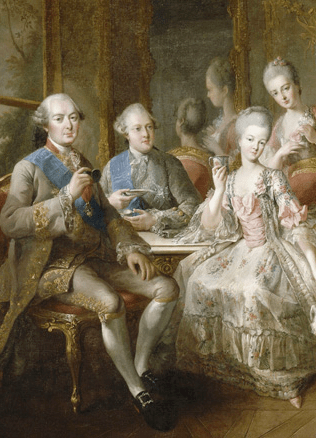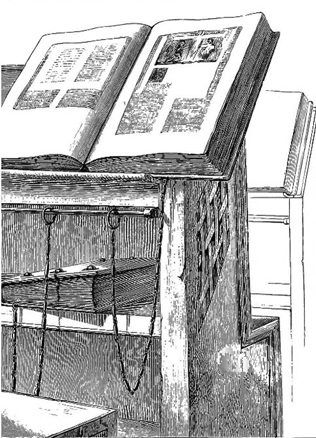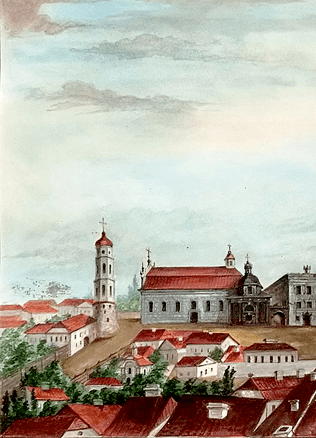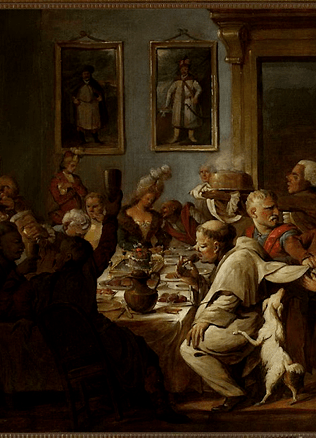The Myth of Freedoms and Rights in the Golden Age
In the second half of 18th century with the growth of press publications, discussions grew concerning the necessity of social reforms in the Commonwealth. Issues were raised concerning the status of magnates, nobles, city dwellers, peasants, Jews and other social group in society. Though the rhetoric of the press had traditionally only information about the problems raised by envoys in the Sejm, the situation changed during the period of the Four-Year Sejm. Discussions concerning the future of the country surpassed the limits of the Sejm, and an important role went to journalists that supported political groups in the Sejm that were in favour of reforms. In the press, there was a growth of anonymous authors (among them also politicians) that invited the raising of the level of cities, reform agriculture, limit the intrusion of nobles in the running of and issues of the cities. They discussed questions pertaining to the peasants and even the abolition of serfdom and highlighted the situation of the Jewish communities and their role in the future. Sometimes one could find calls to reassess the exclusive nature of the noble class and their domination in the country. Wanting to convince readers of their rightness, journalists of the Enlightenment often employed the use of European moral values or the examples of neighbouring countries, but rationally based arguments were not enough. The most important thing was a programme of reforms based on law that was vigilantly defended by the conservative noble estate.
Do You Know?
The May 3rd Constitution of 1791 “confirm, assure, and recognise as inviolable the rights, statutes, and privileges,” that guaranteed a dominant position for the landed nobility in the state. However, the status of landed nobility was defined not only by origins, but also by wealth and duties in the state in the May 3rd Constitution of 1791. In Article II of the constitution, all the prerogatives that were approved for the nobility were oriented toward the landed nobility, while those without land or the poorer nobility were banned from participating in the political sphere.
The medieval world order
At the end of the 18th century, the Commonwealth of Two Nations was an estate-based state. The legal basis of this class society was comprised of privileges for separate social groups, emphasizing their rights and freedoms in the state: for the noble estate, city dwellers, Jews, Karaites, and others. According to the entrenched traditional provisions, each class had duties deemed befit of their origins.
It was demanded from a noble to control and defend the state, from a city dweller to trade and produce products, and from a peasant to work the land.
Educated people understood perfectly well that this “medieval order” worldview was outdated, and did not doubt that if they wanted to pull the state out from the precipice of destruction, at the end of the 18th century they needed not only military, administrative and economic reforms, but also social reforms. They needed to convince the opposition that they were right, based upon the traditions (laws) of the land. The wording of the privileges was inviolable, and once they were adopted, then it was for eternity. The rights defined in them were considered indisputable, though looking at the difficulties, they were not always followed. The weightiest argument by the city dwellers in striving for change was to show the ancient privileges of the city to high-ranking state officials and Sejm envoys.
Until the second half of the 18th century, there were no joint requests by Lithuanian cities; each city represented only their own interests, because there were no privileges that joined all cities and their city dwellers. As discussion grew in the press, Lithuanian cities were able to unite in 1788 when they used the privileges of the most active cities as an argument and demanded from the Sejm that it would be forbidden for foreign merchants that did not pay taxes to freely carry out trade. The argument of the ancient privileges of the cities, constantly brought to the fore in the press and raised by city dwellers, was influential, which is why having expressed their concern of the state of the cities, the nobles of the Vilnius voivodeship accentuated the need to adhere to the “pre-Union privileges” given to cities in their instructions to their envoys in 1788.
The origins of the reforms
The initiators of the city reforms, with the beginning of the discussion of city issues in the Sejm in 1789, followed this traditional method. In order to prepare a project for city reforms, all cities were instructed to send their privileges to the deputation of the Sejm, which was created for this purpose. The situation of the cities and city dwellers was to be reformed in society on the basis of these privileges. Heated discussions concerning the question of cities moved from the Sejm to the press.
In the most heated of discussions, even the strongest opposition did not doubt that earlier the cities and city dwellers had more rights.
The examples of Vilnius, Grodno, Kaunas, Brest and the biggest cities of Poland, which had had many privileges, served as support for this view. The privileges of Vilnius, Krakow, and Warsaw allowed the initiators of reforms to claim that earlier city dwellers had the right to send their representatives to the Sejm, which is why now they needed to have this right returned to them. They talked about the poorly-structured laws that were an influential factor in the economic decline of cities, and the earlier unfettered freedoms for city dwellers to purchase land which were now limited, as well as the right to earn the rank of a military officer.
The initiators of the reforms understood that the situation of the cities had to be reformed looking toward the future, and not the past, and needed unchallengeable arguments to calm the opposition. The author of the project for the law of cities, GDL Joachim Litawor Chreptowicz, linked the expansion of rights for city dwellers with the challenges of defending the state and, contrary to tradition, explained that the state would not be defended only by the impoverished nobles. He campaigned the opposition to rid themselves of their “contempt and disdain for professions and trade.” The city reform project prepared by Chreptowicz emphasized a separate system for the administration and courts of cities, which in the final version of the law did not change and united the class of city dwellers.
The struggle against social inertia
However the initiators of reforms explained that the law being prepared for cities had “to ensure the privileges returned to the cities,” while the opposition, fearing that the noble domination would be dealt a blow, began to demand that the special rights and freedoms of the noble class be preserved. In the Sejm, Trakai voivode envoy Antoni Zaleski spoke against the returning of all the “lost” privileges to the cities. He explained that the time had not yet come for that, because without deciding upon the most important questions of the state, the cities would collapse together with the entire state. As time passed, the opposition weakened, and the City Law, which started the reforms for cities, was adopted.
During the Four-Year Sejm, the class system was strengthened, though the gap between the nobles and city dwellers decreased.
The initiators of the reforms concerning the situation of the cities and nobles saw the vision of the future differently than the old privileges and laws. The May 3rd Constitution of 1791 “confirm, assure, and recognise as inviolable the rights, statutes, and privileges,” that guaranteed a dominant position for the landed nobility in the state. However, the status of landed nobility was defined not only by origins, but also by wealth and duties in the state in the May 3rd Constitution of 1791. In Article II of the constitution, all the prerogatives that were approved for the nobility were oriented toward the landed nobility, while those without land or the poorer nobility were banned from participating in the political sphere. A quote from a law passed by the Sejm in 1764 states “The right of noble equality and origin, even for the poorest [noble], is an honour within this nation.” It was not yet possible to do away with privileges in the case of the prerogatives of either the cities or the nobility, but in considering the realities of the time, they had already managed to change and limit a part of their rights.
Liudas Glemža



